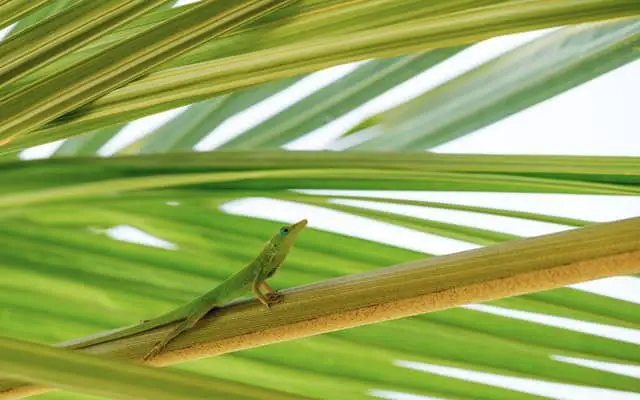
Our cat, despite domestication, is a great hunter. And at times, it can eat dangerous prey for him / her. For example, what if the cat eats a lizard?
We know that cats, both stray and domestic, are still linked to their origins as great hunters. One of their favorite activities is to sit where they know possible prey may pass, and wait for the perfect time to come to unleash a fearsome attack. And a cat does not always attack a prey for hunger, indeed it is often just a game. And because of this, he doesn’t always actually eat his prey after he catches it. But in some cases, these games can become worrying for us masters. If the cat eats a lizard, can it be a danger to his health?
How the domestic cat hunts
A stray cat hunts its prey out of hunger, so it will most likely eat them in a short time and in full.
A domestic cat, on the other hand, usually does it for fun, unless it is greedy for a particular prey.
And for this reason, it may only eat part of its prey (or maybe not eat it at all), and then leave the rest for another moment.
Often the cat takes the remains home to his owner, such as trophies. It is not strange to receive “as a gift” the tails of lizards, insects, pieces of unfortunate small animals.
Some of the most common prey for a domestic cat are: crickets, grasshoppers, spiders, geckos, birds, mice, hornets, and – indeed – lizards. Frogs are another possible prey for cats, but are usually never eaten.
And even waste bins can become a place to look for something to eat, especially for a stray.
Since the cat is a strong predator, with a primitive hunting instinct still present, it is not easy to take the prey away from him / her.
Lizards also tend to split in two, with the tail remaining on the ground while the body runs off. And perhaps this is also one of the reasons why the cat enjoys hunting them!
If we live in cities where there is not much greenery, there are certainly fewer opportunities to find prey victims of our cat at home.
But in the countryside, or if we have a garden, a cat could easily let us find these prey or even feathers, leftovers from his hunting at home.
Often the cat brings its prey home as if it wants to share its meal with its owner.
As much as we are horrified, we must not scold the cat for this behavior, which sees this gesture as a gift and a “thank you” to us humans.
Are lizards dangerous for our cat?
Lizards seem to have a rather bitter taste, but while unappetizing to us humans they are often liked by cats.
However, these reptiles are also mildly toxic, so a cat that eats a lizard may not have a problem, except in some cases.
If a cat eats a lot of lizards, it may be vomiting. And it is also said that it can weaken so much that it decays and sheds hair.
In any case, if the cat tends to eat too many lizards, it is best to notify our veterinarian.
Furthermore, some lizards can be carriers of parasites. One of these is rare in Europe, Platynosomum fastosum, which lives in the southern United States.
If a lizard is infected, the cat that eats it could have severe digestive problems.
Symptoms may include: vomiting, diarrhea, lethargy, weight loss, loss of appetite, yellowed eyes and skin, tender and swollen abdomen.
In addition to these parasites, lizards can also harbor salmonella. This is a very common parasite that does not usually infect healthy cats and dogs.
If a cat (or dog) gets sick from salmonella, however, the symptoms can be bloody diarrhea, vomiting and lethargy.
How to prevent your cat from eating lizards

If we don’t want our cat to eat a lizard that easily, we can take steps to avoid it easily .
First, it’s best to keep our kitty inside. Since cats are predators, and lizards are easy prey for them, it’s an easy way to prevent problems.
If your cat still spends time outside the home, it would be best to keep an eye on him to see what he is doing .
Protect our garden, courtyard or veranda, to block any kind of access to these little reptiles. A protective net could help us close any openings.
In any case, it is better to avoid the occasions in which our cat can find and therefore eat a lizard.
In any case, as we have specified in this article, it is not too serious a thing. If our cat eats an occasional lizard, there is no need to worry.
However, if your kitty seems to be feeling unwell after he does, let’s take him to the vet immediately for a checkup.






